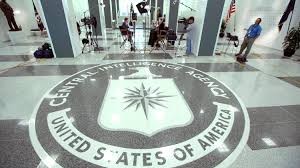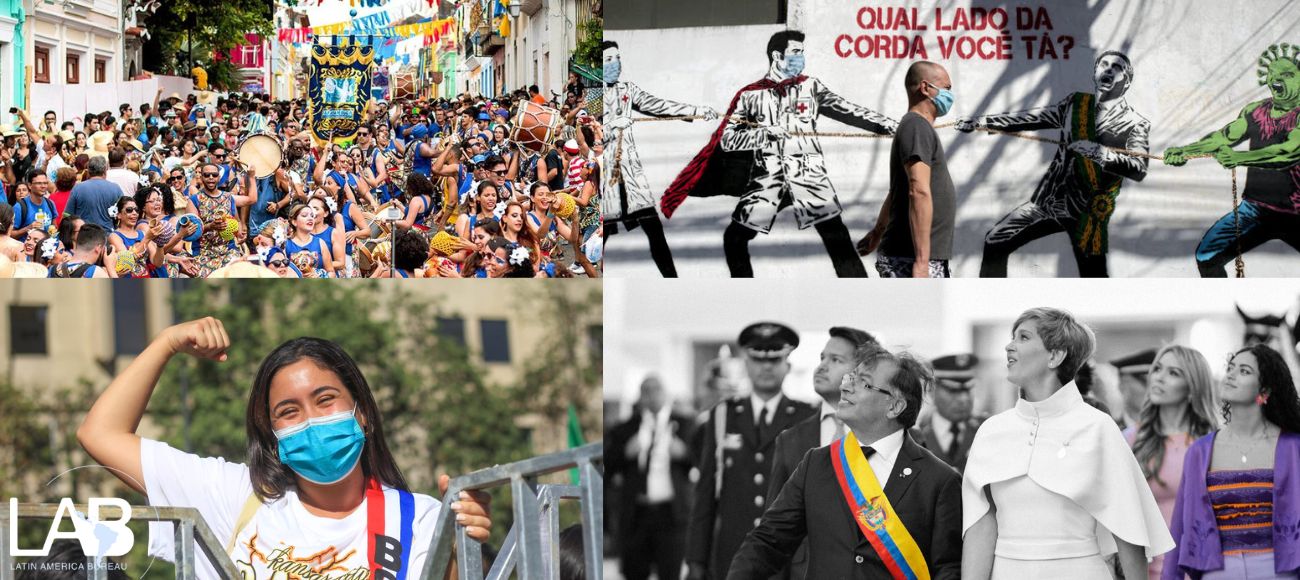 After finishing Jack Devine’s Good Hunting: An American Spymaster’s Story, I immediately thought of this brilliant essay. You’ll understand later why but let me give you a bit of background first.
After finishing Jack Devine’s Good Hunting: An American Spymaster’s Story, I immediately thought of this brilliant essay. You’ll understand later why but let me give you a bit of background first. 
An American Spymaster’s story
In an essay published in 1946 called Politics and the English Language, George Orwell outlined two causes of bad writing: staleness of imagery and lack of precision. Orwell also argued that political writers – through amorphous and vague euphemisms – attempt to defend the indefensible, by giving their prose a semblance of respectability.
 After finishing Jack Devine’s Good Hunting: An American Spymaster’s Story, I immediately thought of this brilliant essay. You’ll understand later why but let me give you a bit of background first.
Devine joined the CIA in 1967 and left in 1998. During this time he was: chief of the Latin America Bureau; head of the Afghan task force; head of the Counternarcotics Centre; and eventually, the highpoint of his career, Associate Director of Operations.
His life had its interesting moments. In 1972, just before Chile’s democratically-elected president, Salvador Allende, was toppled in a coup, Fidel Castro made a highly-publicised one month visit to the country, during which, Devine now tells us, he was secretly following him. Devine could also stand up for his views: during the Reagan administration, after being told that the US was going to sell arms to the Iranians in exchange for hostages, he wrote a note to his superiors outlining why he thought the deal was “inimical to US interests” – sound advice which, as we all know, was ignored.
And in 1986, during the US-backed proxy war between Afghanistan and the Soviet Union, he was personally responsible for providing Islamic terrorists with deadly ‘stinger’ missiles. President Reagan approved this deal just minutes after Devine briefed him in the White House Situation Room.
As gung-ho as all this material is, Devine’s ability to communicate vividly with his readers is extremely limited. And his words have a habit of descending into a curious form of bureaucratic understatement.
For instance, he writes that Latin America “is one of the areas of the world where the CIA has a larger-than-life reputation”. This can only provoke a wry smile from those of us who follow US-Latin America relations and know how frequently the US has resorted to violence to dominate the region.
In fact, the CIA’s tactics for protecting American interests have often included random kidnappings, mass torture, election rigging, endless propaganda, and the killing of thousands of innocent civilians. It has mostly achieved this by supplying the bloodthirsty, murderous gangs it calls democrats with billions of dollars.
For example, during the Reagan administration, Washington supported the heinous crimes of Rios Montt, then President of Guatemala, and Gustavo Alvarez Martinez, a military officer in the Honduras armed forces. The former is today awaiting a retrial on charges of genocide, while the latter operated death squads under the protection of John Negroponte, US ambassador to Honduras at the time, where he ran the largest CIA station on the planet. And in El Salvador, where the authoritarian government was waging war against leftwing insurgents, US military aid increased from US$6 million in 1980 to US$1 billion in 1990.
None of this, naturally enough, is mentioned in Devine’s memoir. We are told, however, how “many Latin American governments were more than happy to point the finger at the CIA if it meant giving themselves some cover and a bit of political space to manoeuvre.”
Devine states explicitly that torture is against American values. But there is not a word in this book about how the CIA outsourced torture of suspected terrorists to countries as diverse as Egypt, Syria, Jordan, Uzbekistan, Romania, Poland, and Cuba.
You have to go to other authors for information on CIA atrocities, notably Stephen in Ghost Plane: The Inside Story of the CIA’s Secret Rendition Programme and the excellent investigative articles written by Dana Priest in the Washington Post and Jane Mayer in the New Yorker.
Since the CIA was founded in 1947, the legality of many of its actions has often been questioned. So it’s probably naïve of this reviewer to expect a truthful account from a man writing about his experiences in an organisation of which the very backbone is secrecy.
Still, it’s hard not to feel cynical about Devine’s capacity to deceive himself and ignroe inconvenient facts. He calls himself non-partisan but sees the world in stark shades of black-and-white and good versus evil. Such an absolutist outlook led him personally to train the Islamic terrorists who went on to instigate 9/11. These men then became the biggest threat to American foreign policy after the “evil empire” collapsed in 1989. But, predictably enough, Devine categorically denies that such a trajectory took place.
The only political science theory that gets mentioned here is Samuel Huntington’s 1995 “Clash of Civilizations” essay, which was later turned into a book. Devine brought in this conservative professor from Harvard to brief CIA agents, as his views, he says, resonated with the organization.
Echoing Huntington’s monolithic, imperialist, world view – which calls for the west to reinforce its political and economic dominance upon the world – Devine argues that “the better ideology almost always prevails”.
But – and this brings me back to Orwell – he never clarifies what this better, western ideology is.
This lack of critical thinking leads to a three-stage process. First you become a bad writer. Then you become a good liar. And eventually, you begin believing the nonsense you write.
*JP O’Malley is a freelance journalist originally from Dublin, living in London. His work has appeared in many publications including The Sunday Times, The Spectator, The Observer. http://johnpaulomalley.tumblr.com/
After finishing Jack Devine’s Good Hunting: An American Spymaster’s Story, I immediately thought of this brilliant essay. You’ll understand later why but let me give you a bit of background first.
Devine joined the CIA in 1967 and left in 1998. During this time he was: chief of the Latin America Bureau; head of the Afghan task force; head of the Counternarcotics Centre; and eventually, the highpoint of his career, Associate Director of Operations.
His life had its interesting moments. In 1972, just before Chile’s democratically-elected president, Salvador Allende, was toppled in a coup, Fidel Castro made a highly-publicised one month visit to the country, during which, Devine now tells us, he was secretly following him. Devine could also stand up for his views: during the Reagan administration, after being told that the US was going to sell arms to the Iranians in exchange for hostages, he wrote a note to his superiors outlining why he thought the deal was “inimical to US interests” – sound advice which, as we all know, was ignored.
And in 1986, during the US-backed proxy war between Afghanistan and the Soviet Union, he was personally responsible for providing Islamic terrorists with deadly ‘stinger’ missiles. President Reagan approved this deal just minutes after Devine briefed him in the White House Situation Room.
As gung-ho as all this material is, Devine’s ability to communicate vividly with his readers is extremely limited. And his words have a habit of descending into a curious form of bureaucratic understatement.
For instance, he writes that Latin America “is one of the areas of the world where the CIA has a larger-than-life reputation”. This can only provoke a wry smile from those of us who follow US-Latin America relations and know how frequently the US has resorted to violence to dominate the region.
In fact, the CIA’s tactics for protecting American interests have often included random kidnappings, mass torture, election rigging, endless propaganda, and the killing of thousands of innocent civilians. It has mostly achieved this by supplying the bloodthirsty, murderous gangs it calls democrats with billions of dollars.
For example, during the Reagan administration, Washington supported the heinous crimes of Rios Montt, then President of Guatemala, and Gustavo Alvarez Martinez, a military officer in the Honduras armed forces. The former is today awaiting a retrial on charges of genocide, while the latter operated death squads under the protection of John Negroponte, US ambassador to Honduras at the time, where he ran the largest CIA station on the planet. And in El Salvador, where the authoritarian government was waging war against leftwing insurgents, US military aid increased from US$6 million in 1980 to US$1 billion in 1990.
None of this, naturally enough, is mentioned in Devine’s memoir. We are told, however, how “many Latin American governments were more than happy to point the finger at the CIA if it meant giving themselves some cover and a bit of political space to manoeuvre.”
Devine states explicitly that torture is against American values. But there is not a word in this book about how the CIA outsourced torture of suspected terrorists to countries as diverse as Egypt, Syria, Jordan, Uzbekistan, Romania, Poland, and Cuba.
You have to go to other authors for information on CIA atrocities, notably Stephen in Ghost Plane: The Inside Story of the CIA’s Secret Rendition Programme and the excellent investigative articles written by Dana Priest in the Washington Post and Jane Mayer in the New Yorker.
Since the CIA was founded in 1947, the legality of many of its actions has often been questioned. So it’s probably naïve of this reviewer to expect a truthful account from a man writing about his experiences in an organisation of which the very backbone is secrecy.
Still, it’s hard not to feel cynical about Devine’s capacity to deceive himself and ignroe inconvenient facts. He calls himself non-partisan but sees the world in stark shades of black-and-white and good versus evil. Such an absolutist outlook led him personally to train the Islamic terrorists who went on to instigate 9/11. These men then became the biggest threat to American foreign policy after the “evil empire” collapsed in 1989. But, predictably enough, Devine categorically denies that such a trajectory took place.
The only political science theory that gets mentioned here is Samuel Huntington’s 1995 “Clash of Civilizations” essay, which was later turned into a book. Devine brought in this conservative professor from Harvard to brief CIA agents, as his views, he says, resonated with the organization.
Echoing Huntington’s monolithic, imperialist, world view – which calls for the west to reinforce its political and economic dominance upon the world – Devine argues that “the better ideology almost always prevails”.
But – and this brings me back to Orwell – he never clarifies what this better, western ideology is.
This lack of critical thinking leads to a three-stage process. First you become a bad writer. Then you become a good liar. And eventually, you begin believing the nonsense you write.
*JP O’Malley is a freelance journalist originally from Dublin, living in London. His work has appeared in many publications including The Sunday Times, The Spectator, The Observer. http://johnpaulomalley.tumblr.com/
 After finishing Jack Devine’s Good Hunting: An American Spymaster’s Story, I immediately thought of this brilliant essay. You’ll understand later why but let me give you a bit of background first.
After finishing Jack Devine’s Good Hunting: An American Spymaster’s Story, I immediately thought of this brilliant essay. You’ll understand later why but let me give you a bit of background first. 
